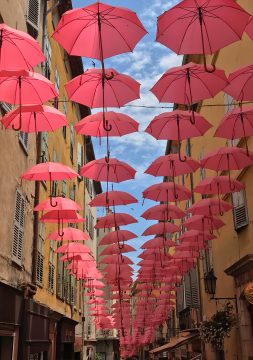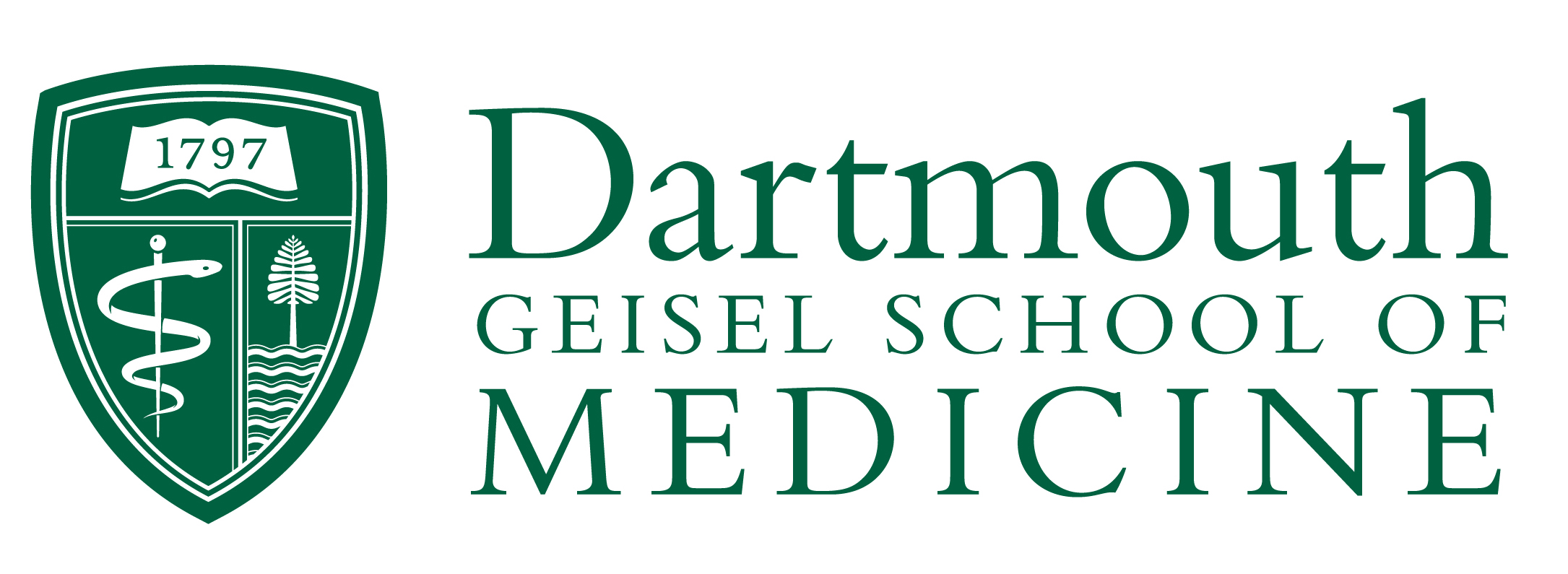When Duane Compton began taking photos more than 30 years ago, he peered through a microscope to capture chromosome segregation. Many of his images illuminate different aspects of how chromosomes are organized, the process of separation, and the structure of microtubules, which are responsible for moving chromosomes. To the uninitiated, these photos of random patterns and vivid colors could be interpreted as abstract art.
Patterns and light subtly underpin Compton’s personal photographs too, though he says the patterns are unintentional, as he peers through his smartphone camera—fascinated by the physics of light and capturing the moment.

Pink Umbrellas in Grasse, right, was taken on a hot, sunny summer day when the sun was high, the light harsh. “Grasse is a beautiful little town on the French Riviera and the umbrellas were hung to shelter people from the sun so they could enjoy walking around the town. It was beautiful—I had to capture it.”
Compton says his smartphone, which means having a camera at the ready, has changed his approach to photography. Lacking the bells and whistles of traditional cameras, which is fine with him, smartphones require the photographer to pay attention to composition fundamentals such as light, color, subject placement, and line (or, if you will, pattern).
An avid hiker and explorer, Compton prefers landscapes to people—no selfies are a strict rule—and photos of his mountain hikes and international travels reveal a dedication to those fundamentals. It isn’t unusual for him to rise early and head to New Hampshire’s White Mountains to capture a summer sunrise, take a late afternoon walk in the woods among the sun’s long shadows, or record a spectacular urban sunset.
When Dartmouth temporarily closed its research labs at the peak of the coronavirus, Compton began sending photos to everyone in his lab to help them take their minds off of the surging pandemic. He refers to those weekly photos as a “Moment of Zen” and continues the practice.
“The Moment of Zen series helps ameliorate the anxiety from external news, gives me peaceful moments of joy, and makes me feel much less isolated when observing social distancing,” says Chenhui Deng, a PhD candidate in the Molecular & Cellular Biology Program.
Beyond the photos themselves, and Compton has taken thousands, he says “every single image represents a story and when I look at a particular photo, I’m transported back to the time I took it. They are the visual diary of my life.”
Duane Compton, PhD, is dean of Dartmouth’s Geisel School of Medicine and a professor of biochemistry and cell biology.




